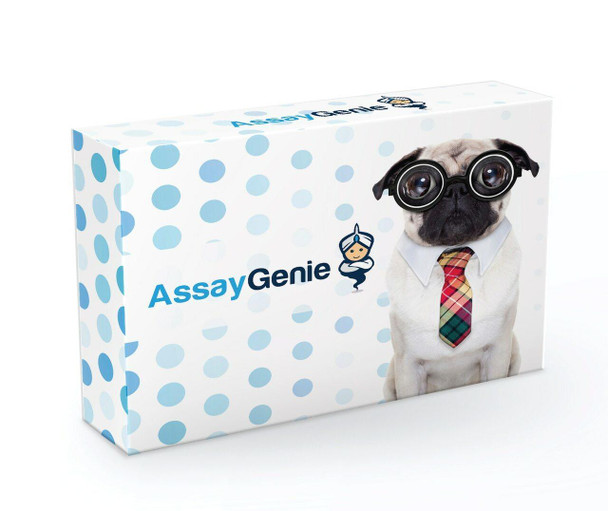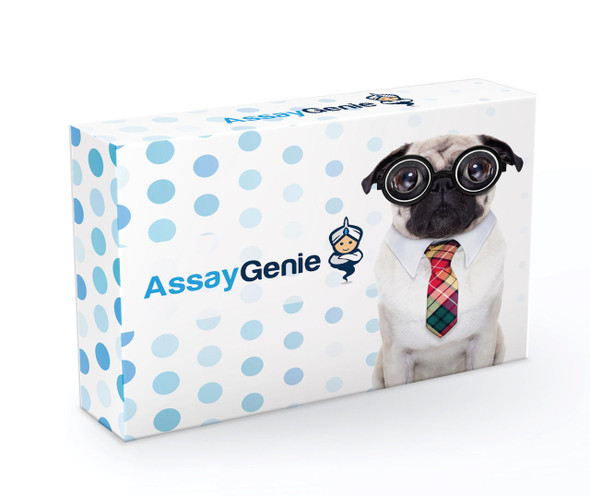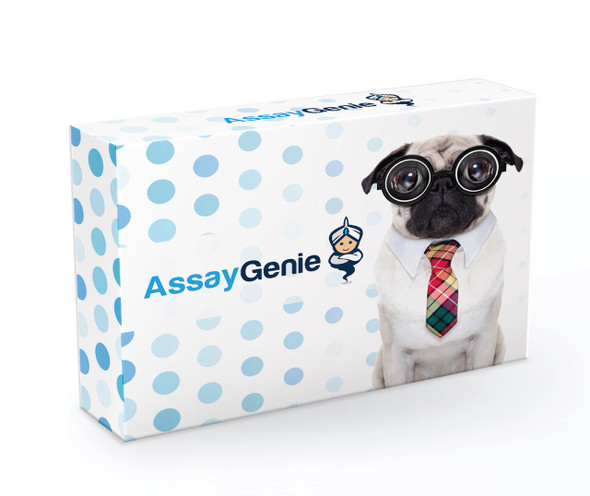Description
Fgf2 Antibody, Biotin conjugated (PACO64022)
The FGF2 Antibody (Biotin Conjugated) is a valuable tool for researchers studying Fibroblast Growth Factor 2 (FGF2), a key protein involved in cell proliferation, differentiation, and survival. This antibody, conjugated with biotin for enhanced detection capabilities, is raised in rabbits and specifically targets FGF2 in human samples.FGF2 is a critical growth factor that plays a crucial role in various cellular processes, including angiogenesis, wound healing, and tissue repair. Research has shown that dysregulation of FGF2 can contribute to various diseases, such as cancer, cardiovascular disorders, and neurological conditions.
By using the FGF2 Antibody (Biotin Conjugated), researchers can study the expression and localization of FGF2 in different cell types and tissues, providing valuable insights into its biological functions. This antibody is validated for use in techniques such as immunohistochemistry, ELISA, and Western blot, making it a versatile tool for studies in cell biology, cancer research, and regenerative medicine. Understanding the role of FGF2 and its signaling pathways is essential for developing targeted therapies and treatments for FGF2-associated diseases.
| Antibody Name: | Fgf2 Antibody? Biotin conjugated (PACO64022) |
| Antibody SKU: | PACO64022 |
| Size: | 50ul |
| Host Species: | Rabbit |
| Tested Applications: | ELISA |
| Recommended Dilutions: | |
| Species Reactivity: | Rat |
| Immunogen: | Recombinant Rat Fibroblast growth factor 2 protein (10-154AA) |
| Form: | Liquid |
| Storage Buffer: | Preservative: 0.03% Proclin 300 Constituents: 50% Glycerol, 0.01M PBS, pH 7.4 |
| Purification Method: | >95%, Antigen Affinity purified & Affinity purified |
| Clonality: | Polyclonal |
| Isotype: | IgG |
| Conjugate: | Biotin |
| Synonyms: | Fibroblast growth factor 2 (FGF-2) (Basic fibroblast growth factor) (bFGF) (Heparin-binding growth factor 2) (HBGF-2), Fgf2, Fgf-2 |
| UniProt Protein Function: | FGF2: Plays an important role in the regulation of cell survival, cell division, angiogenesis, cell differentiation and cell migration. Functions as potent mitogen in vitro. Monomer. Homodimer. Interacts with FGFR1, FGFR2, FGFR3 and FGFR4. Affinity between fibroblast growth factors (FGFs) and their receptors is increased by heparan sulfate glycosaminoglycans that function as coreceptors. Interacts with CSPG4, FGFBP1 and TEC. Found in a complex with FGFBP1, FGF1 and FGF2. Expressed in granulosa and cumulus cells. Expressed in hepatocellular carcinoma cells, but not in non- cancerous liver tissue. Belongs to the heparin-binding growth factors family. 4 isoforms of the human protein are produced by alternative initiation. |
| UniProt Protein Details: | Protein type:Activator; Motility/polarity/chemotaxis Cellular Component: extracellular space; cytoplasm; cytosol; nucleus Molecular Function:heparin binding; protein binding; ligand-dependent nuclear receptor transcription coactivator activity; growth factor activity; cytokine activity; fibroblast growth factor receptor binding; chemoattractant activity Biological Process: activation of MAPKK activity; wound healing; regulation of cell cycle; positive regulation of smooth muscle cell proliferation; positive regulation of transcription, DNA-dependent; adrenocorticotropin hormone secreting cell differentiation; thyroid stimulating hormone secreting cell differentiation; hyaluronan catabolic process; growth factor dependent regulation of satellite cell proliferation; positive regulation of MAP kinase activity; embryonic development ending in birth or egg hatching; negative regulation of cell proliferation; glial cell differentiation; substantia nigra development; positive chemotaxis; induction of an organ; positive regulation of cell proliferation; regulation of retinal cell programmed cell death; response to axon injury; angiogenesis; aging; positive regulation of cardiac muscle cell proliferation; positive regulation of granule cell precursor proliferation; fibroblast growth factor receptor signaling pathway; positive regulation of cell fate specification; positive regulation of blood vessel endothelial cell migration; positive regulation of phosphoinositide 3-kinase activity; negative regulation of blood vessel endothelial cell migration; positive regulation of protein kinase B signaling cascade; positive regulation of osteoblast differentiation; positive regulation of angiogenesis; stem cell development; cell migration during sprouting angiogenesis; ureteric bud branching; positive regulation of cell division; release of sequestered calcium ion into cytosol; phosphatidylinositol biosynthetic process; positive regulation of endothelial cell proliferation; positive regulation of transcription from RNA polymerase II promoter; positive regulation of protein amino acid phosphorylation; positive regulation of cell differentiation; inositol phosphate biosynthetic process; positive regulation of epithelial cell proliferation; lung development |
| NCBI Summary: | activates the MAP kinase signaling pathway; plays a role in synaptic transmission; induces cell proliferation [RGD, Feb 2006] |
| UniProt Code: | P13109 |
| NCBI GenInfo Identifier: | 122745 |
| NCBI Gene ID: | 54250 |
| NCBI Accession: | P13109.1 |
| UniProt Related Accession: | P13109 |
| Molecular Weight: | 17,139 Da |
| NCBI Full Name: | Fibroblast growth factor 2 |
| NCBI Synonym Full Names: | fibroblast growth factor 2 |
| NCBI Official Symbol: | Fgf2 |
| NCBI Official Synonym Symbols: | bFGF; Fgf-2 |
| NCBI Protein Information: | fibroblast growth factor 2; HBGF-2; basic fibroblast growth factor; heparin-binding growth factor 2 |
| UniProt Protein Name: | Fibroblast growth factor 2 |
| UniProt Synonym Protein Names: | Basic fibroblast growth factor; bFGF; Heparin-binding growth factor 2; HBGF-2 |
| Protein Family: | Fibroblast growth factor |
| UniProt Gene Name: | Fgf2 |
| UniProt Entry Name: | FGF2_RAT |










